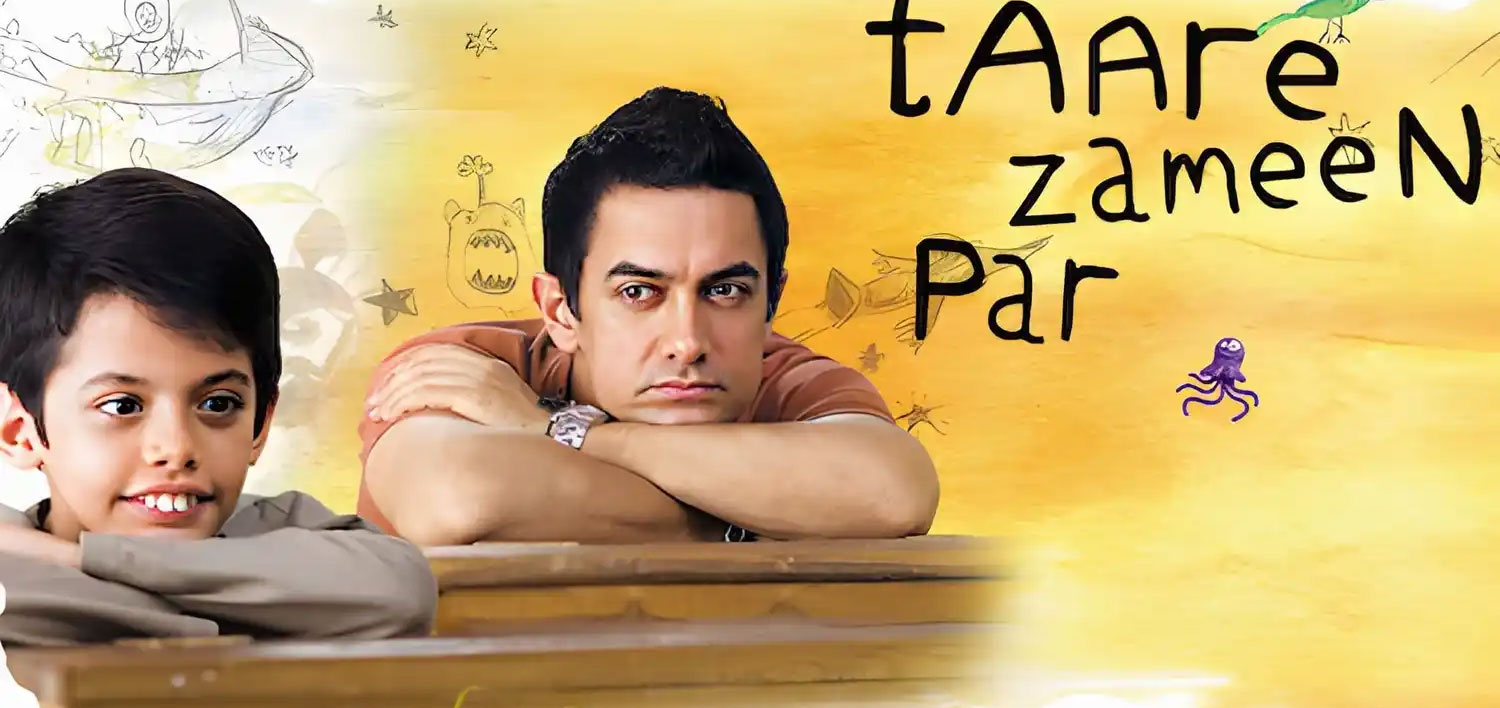
Taare Zameen Par Movie Review
TZP: A Film that Outshines the Rest
Taare Zameen Par (TZP) is without a doubt the most "special" film of 2007. While the majority of "hit" films released in 2007 were comedies, TZP is debutante director Aamir Khan and scriptwriter Amole Gupte's brilliant take on a very serious subject: childhood dyslexia.
TZP is the story of 8-year-old Ishaan Nandkishore Awasthi (Darsheel Safary), a child with immense artistic abilities who finds happiness in the smallest of things in life-fish in gutters, street dogs, and colors; but, he is frowned upon by his teachers and father because of his inability to perform well academically. Instead of learning the root cause of Ishaan's adverse academic performance, Mr. Awasthi (Vipin Sharma), characterized as a strict, no-nonsensical, discipline-prizing man, packs Ishaan off to boarding school the day after Diwali despite Ishaan's whimpers and the protests of his wife and elder son.
At boarding school, Ishaan's wide, toothy grin comes to a complete halt. He feels punished and overwhelmed by the separation from his family, especially from his mother (Tisca Chopara). He ceases to use his artistic talent. He becomes silent and depressed. It all seems to be going downhill until one day a miracle happens -a young, caring, and boisterous substitute art teacher, Ram Shankar Nikhumb (Aamir Khan), arrives who happens to have more than a hunch about what is deterring Ishaan from rising academically because he, too, has a past very similar to Ishaan's.
TZP is superb in all aspects from cinematography and dialogues to music and acting. TZP makes excellent use of animation to give insight into a child's mind. Amole Gupte's dialogues are very powerful, especially in the scene when Aamir Khan confronts Ishaan's father about his dyslexia, and the scene in which he gives Mr. Awasthi a lesson on "caring." Scenes such as when Mr. Awasthi tells Ishaan that he is leaving his home, when Ishaan tries to prove he is not afraid of boarding school on Diwali, and when Ishaan's teachers see the caricatures of themselves will make you smile. Likewise, the scene in which Nikumbh offers a poor, young boy biscuits and tea will touch your heart. Shankar-Eshaan-Loy's music score is melodious as always, and Prasoon Joshi's lyrics cleverly convey all that Ishaan does not say through his dialogues. From stock actors such as the students and principle to the leading characters Ishaan and Nikumbh, everyone is a "taara."
There are a few minor aspects of the film which may cause some to raise an eyebrow. Why is Nikumbh always teary-eyed, even in moments when Ishaan is not around? Why Ishaan's teachers are portrayed as emotionless brutes and why does his boarding school seem more like an orphanage? Why is Ishaan's mother portrayed as a bechaari who knows her son is being treated unfairly but doesn't have the guts to stand up to her domineering and insensitive husband? Perhaps these are all artistic decisions to give insight into the world of a sensitive 8-year-old, for whom everything seems larger-than-life.
Nonetheless, TZP offers many meaningful social messages without taking away from the film's entertainment factor. TZP highlights the dangers of the school system in which teachers just don't care about the well-being of every single student, and a world in which parents overburden the delicate shoulders of their children with the pressures of coming first in and outside of school. The film draws attention to the ills of a society which prizes the engineers, computer scientists and doctors, dismisses the artists, and typecasts anyone with special needs as being "mental."
TZP is a film that is destined to reach the masses. TZP will prove that a film without the jhatkas, matkas and item dances can still be equally as entertaining and successful at the box office. Winning Indian film awards will be a small feat for this movie - I'm predicting this film will bring home an Oscar!
/
OTHER REVIEWS



















